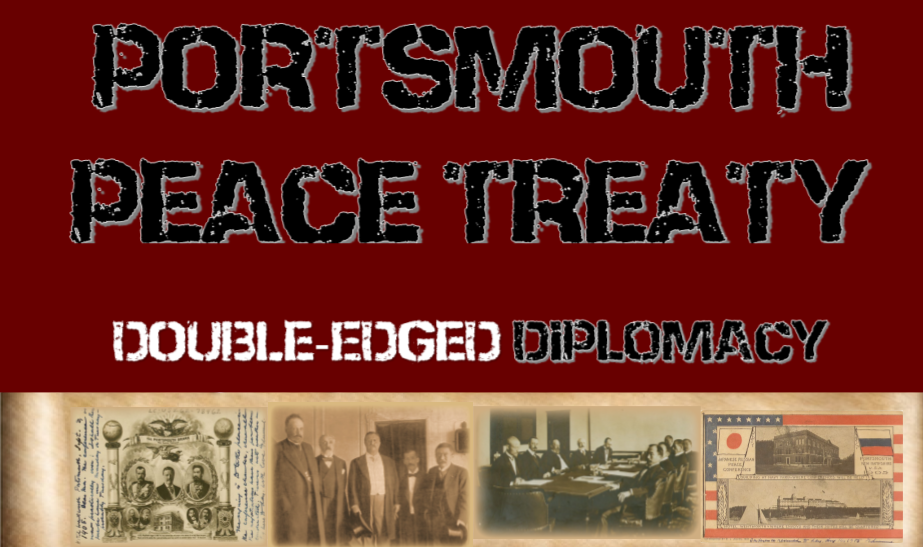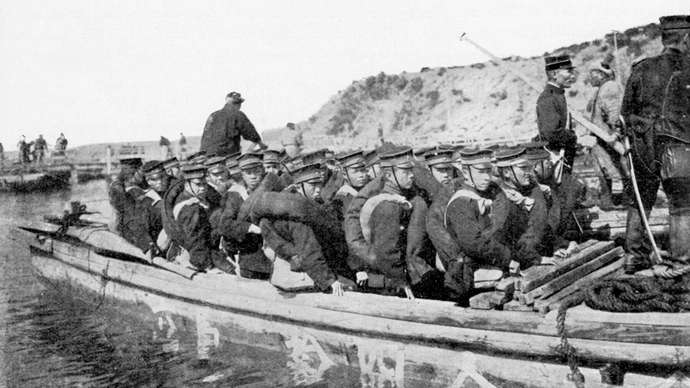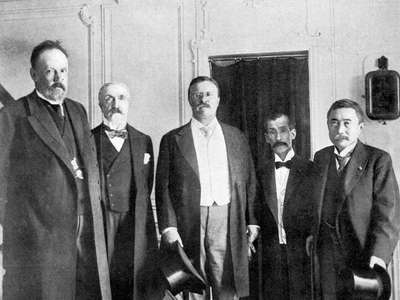

By brokering the Portsmouth Peace Treaty and ending the Russo-Japanese War, President Theodore Roosevelt strengthened America's foreign policy presence in international affairs, but also granted Japan many Russian territorial concessions. This acknowledgement of Japanese Imperialism paved the way for Japan to become a dominant military power, and set the stage for WWII.

Japanese Troops en route to North Korea to defeat the Russians.
Source: Photos.com/Getty Images via Encyclopædia Britannica
The Russo-Japanese War (1904-1905) was a conflict between Japan and Russia over control of East-Asian economic opportunities. Port Arthur in Manchuria, officially controlled by Russia, was of key strategic and commercial significance to both countries.
Japan launched a surprise attack on Port Arthur, crippling the Russian Navy and beginning the war. Despite many Japanese victories, there were extensive bilateral casualties.
President Theodore Roosevelt was invited to broker the Portsmouth Peace Treaty to conclude the drawn-out conflict. The treaty was signed by both Russian and Japanese envoys in the Portsmouth naval shipyard.
This major diplomatic success established the United States' dominance in foreign policy, while bolstering Japanese Imperialism by conceding territories to Japan and setting the stage for WWII.

President Theodore Roosevelt with Russian and Japanese envoys.
Source: Theodore Roosevelt Center
Ethan Chen
The Portsmouth Peace Treaty: President Theodore Roosevelt's Double-Edged Diplomacy during the Russo-Japanese War
Junior Individual Website
Word Count: 1198
Multimedia Time: 2:45
Process Paper Word Count: 446